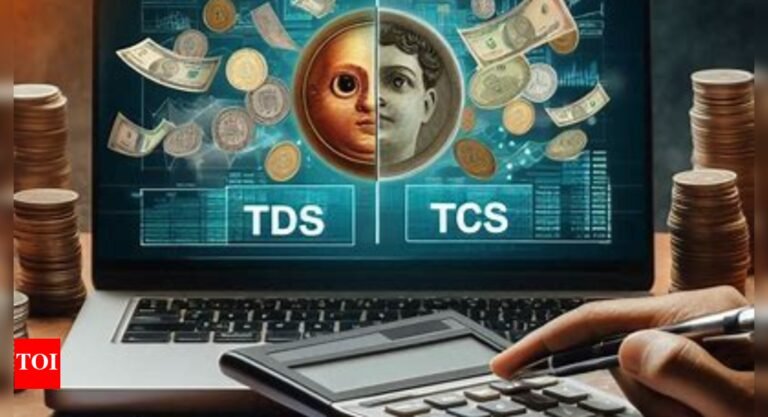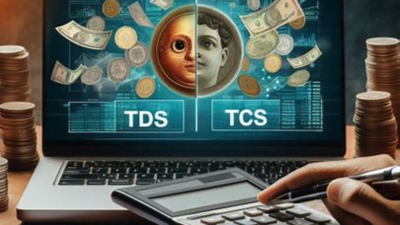Tax Deducted at Source (TDS) and Tax Collected at Source (TCS) are two separate provisions under the Indian tax regime, both intended to facilitate early and efficient tax collection. Though applied during transactions, they differ in usage, liable parties, and the nature of the payments they cover.For both individuals and businesses, understanding how TDS and TCS function is crucial for accurate income tax filing and better financial management. By ensuring that taxes are collected right at the point of income or sale, these mechanisms reduce evasion risks and help distribute tax liability throughout the year.What is TDS?TDS refers to the tax deducted by a person or entity at the time of making certain specified payments—such as salary, rent, interest, professional fees, or on property transactions. The party making the payment, called the ‘deductor’, is legally responsible for withholding tax at the applicable rate and remitting it to the government, as explained by an ET report.The recipient, known as the ‘deductee’, receives the net amount after deduction and can later claim credit for the TDS while filing their tax return.Example: Suppose you pay monthly rent of ₹90,000, which is above the ₹50,000 threshold. You’re required to deduct 10 per cent TDS—₹9,000—and pay the balance ₹81,000 to your landlord. The ₹9,000 must then be deposited with the tax authorities.What is TCS?TCS, on the other hand, is a tax collected by the seller from the buyer when selling certain goods or services. This provision falls under Section 206C of the Income Tax Act, 1961. Here, the responsibility lies with the seller to collect tax on transactions and submit it to the government.Items covered under TCS include minerals, forest produce, scrap, liquor, certain high-value vehicles, foreign remittances, and overseas travel packages.Example: If you purchase an international travel package worth ₹14 lakh, and the threshold is ₹10 lakh, the travel agency must collect 20 per cent TCS on the ₹4 lakh excess—amounting to ₹80,000—which the buyer pays along with the package cost.Key difference:The core distinction lies in who is responsible for compliance.
- In TDS, the payer deducts tax before making a payment.
- In TCS, the seller collects tax while receiving payment.
Despite this difference, both systems aim to strengthen compliance and secure tax revenues in advance. Not deducting or collecting these taxes properly can lead to penalties and interest liabilities.
| Particulars | TDS | TCS |
|---|---|---|
| What is it? | Tax deducted at source of income. | Tax collected during sale of goods or services. |
| Who levies it? | Person or organisation making the payment. | Person selling goods or services. |
| When is it levied? | At the time of making payment. | At the time of sale. |
| Levied under Section | Section 192 | Section 206C |
| Due date | 7th of next month. | Seven days from the last day of the month. |
(Based on ET report)Why should one know the difference?Understanding how TDS works helps individuals and professionals keep track of taxes already deducted on income streams like salaries or consultancy payments—amounts that can be claimed as credit during income tax filing. Likewise, awareness of TCS ensures that tax paid on high-value purchases or foreign transactions isn’t missed when claiming tax credits.Being familiar with both also helps prevent mismatches in Form 26AS, reduces the likelihood of receiving tax department notices, and contributes to smoother, more accurate income tax return filing.



